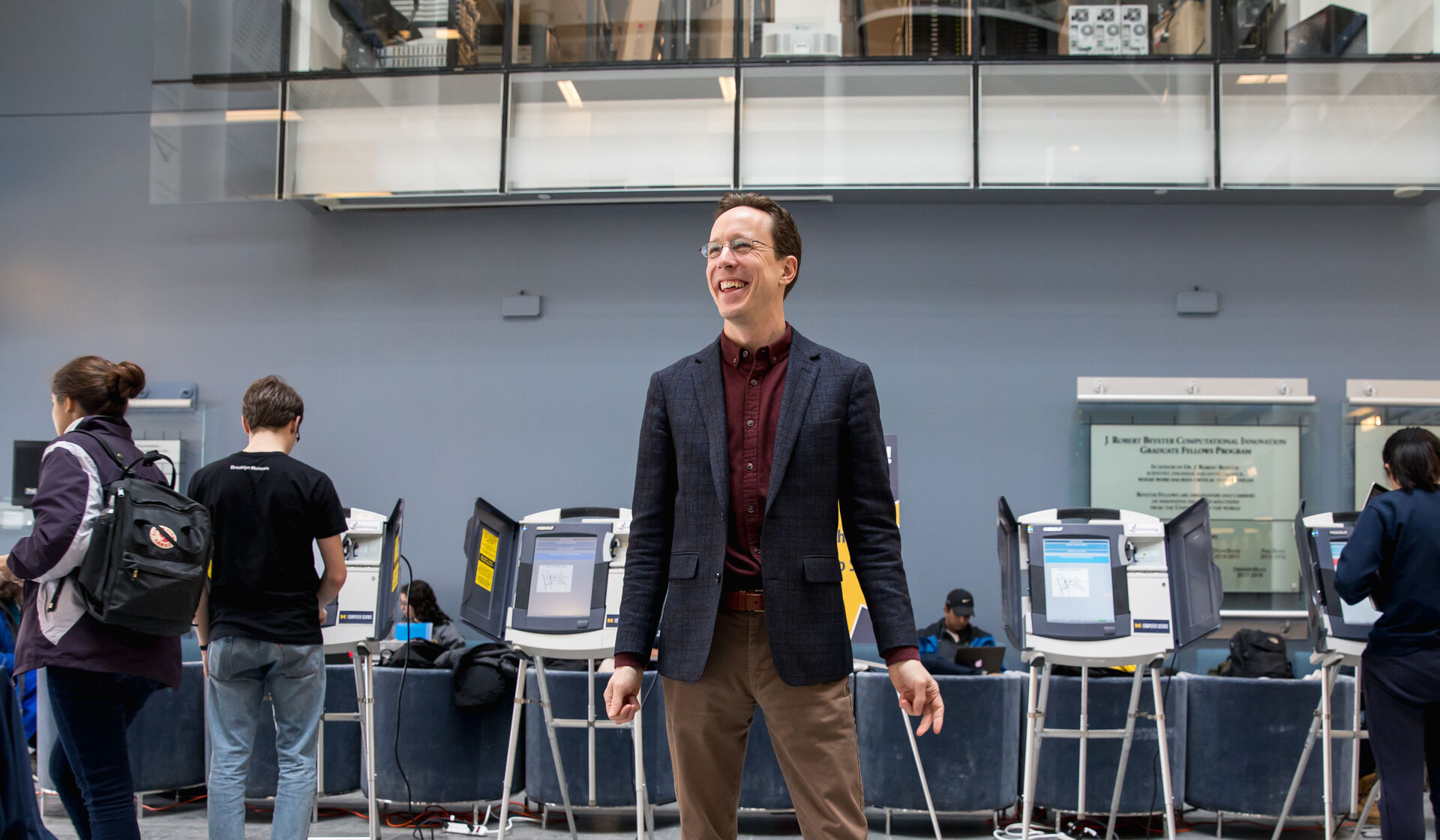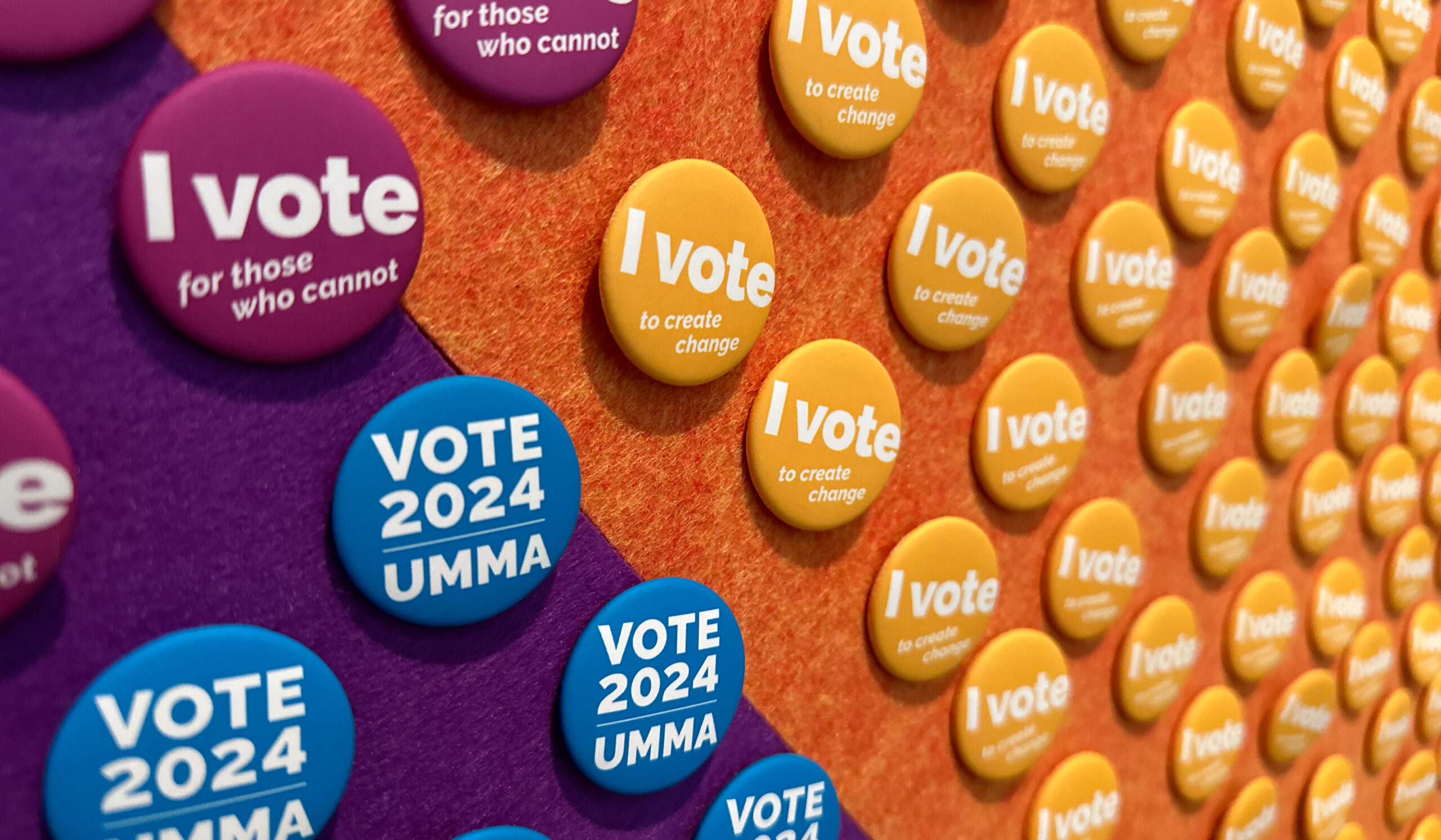Careful: If you bring up the University of Michigan to Richard Bernstein, ’96, be prepared for an onslaught of adjectives. “Fantastic,” “wonderful,” “one of the best experiences you can ever hope to have.” Bernstein credits his alma mater for giving him confidence to explore the world, ultimately leading to the bench of the Michigan Supreme Court.
“Quite candidly, I don’t think I would have had the courage to run for the Supreme Court of the state of Michigan if I had not had the experience of running for office on campus,” Bernstein said.
Elected in 2014 as a Democrat to an eight-year term, he is the first blind justice on the state’s highest court and the first in the nation to be voted into such a post. (A legally blind Missouri Supreme Court justice was appointed in 2002.) After campaigning with the slogan “blind justice,” Bernstein spent his first months in office visiting state prisons to deepen his understanding of Michigan’s system of sentencing and punishment.
In his more ordinary work, Bernstein prepares for court cases by relying both on adaptive technology tools and an assistant who reads documents aloud. He internalizes the text, coming close to memorizing them word for word—just as he did when he studied in college.
Bernstein grew up in a UM-loving family in the Detroit suburbs; in fact, his brother Mark is now a University regent. There initially was concern that Bernstein’s blindness would make the campus overwhelming. But when he moved into Mary Markley Hall in 1992, University staff—Bernstein can tick off each one by name—helped him feel at home. “At Michigan, you had a chance to set your path.”
He studied abroad in London for two summers, joined a fraternity, and earned a bachelor of general studies, which he described as one of the University’s best-kept secrets. “It’s the one major that really allowed for you to learn literally for the sake of learning,” he said. Instead of concentrating on one subject, the program requires advanced classes across the spectrum. Bernstein opted for courses in science, history, English, ancient civilizations, political science, and theology.
Bernstein also won the presidency of the College of Literature, Science, and the Arts. “You couldn’t ask for a better experience,” he said. “It taught you how to run for office, how to run a campaign where you’re trying to reach out to 18,000 students, how to interview with a newspaper and go through editorial endorsements, how to go to different groups and answer questions, all the things you have to do to seek real political office.” That came in handy shortly after graduation when Bernstein, at age 28, won an eight-year term on Wayne State University’s board of governors.
It was also in Ann Arbor that Bernstein discovered his lifelong love of running. Campus culture “created a level of energy and excitement for athletic competition.” On a Central Campus Recreation Building treadmill, he began a journey leading him to complete 18 marathons and one Ironman triathlon, in which he biked 112 miles, ran 26.2 miles, and swam 2.4 miles with the help of a guide. He completed his most recent marathon in 2013, just over a year after suffering a terrible accident in New York City’s Central Park. A bicyclist crashed into him from behind, and Bernstein was hospitalized for 10 weeks with a shattered hip and pelvis. He spent the time seeking a meeting with City Hall about making Central Park more accessible. He says they refused to meet with him, so he filed a federal lawsuit. But he didn’t ask for financial compensation—only improved standards.
Bernstein, who graduated from Northwestern University’s law school, advocated for disability rights in his career as an attorney. That includes a lawsuit that challenged the renovated Michigan Stadium’s inclusion of fans with disabilities. He also, in partnership with the U.S. Department of Justice, pushed Detroit to fix broken wheelchair lifts on city buses. In a case against Delta Airlines and Detroit Metropolitan Airport, he won greater accessibility for disabled people on flights.
In his spare time—if you can call it that—Bernstein has been an adjunct political science professor. He taught in the same Angell Hall lecture rooms where he sat as a student not long ago. He’s thinking of getting back into that, but only after “I get the job figured out at the Supreme Court.”





